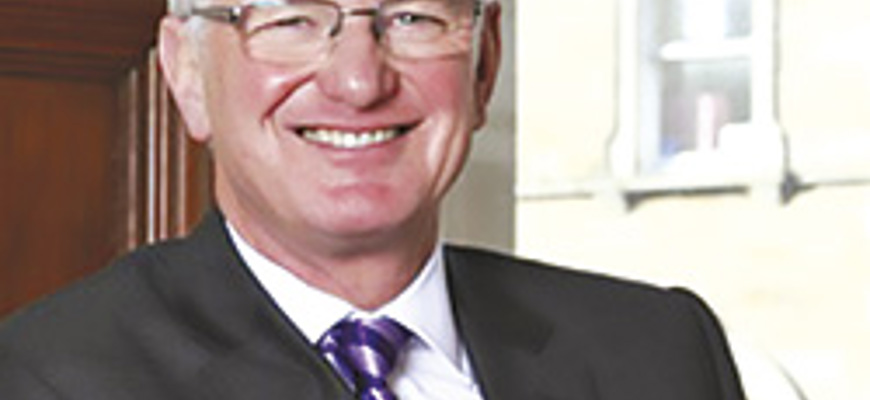Public benefit
“For the greater good” was the motivation of many lawyers choosing the profession. Now the Society’s annual conference seeks to re-energise that desire, with that theme running through the day

I am genuinely excited by the ambition and substance of the content,” the Society’s President, Graham Matthews, wrote in a newspaper preview of this year’s annual conference. The programme, under the theme, “For the greater good”, has been designed to refresh that desire to do justice that inspired many lawyers in choosing their career.
It is a theme that embraces many aspects of the profession’s work – and has been adopted for one of the three sets of streamed sessions, with quality speakers signed up to do justice to the topics.
Challenge to do better
“Diversity and equality: equality means business” opens the stream, covering both strategies in recruitment and making firms more accessible to clients. Chaired by Society Vice President Alison Atack, this features Rupa Mooker, an employment lawyer at MacRoberts who has progressed to become the firm’s director of HR; Ty Jones, award-winning CSR and diversity specialist, currently director of CSR and engagement at DWF; and Drew McCusker, trainee solicitor and founder of The Glass Network, Scotland’s first network for LGBT+ legal professionals, which made its high- profile launch in June.
How changing one life can change hundreds more is the vision of the next session, “Access to justice – helping the vulnerable and those in most need”. Few are better qualified in the subject than Glasgow solicitors Aamer Anwar and the Legal Services Agency’s Paul Brown. Equally good value should be Jo (Jolyon) Maugham QC, founder and director of the Good Law Project, who among other interests is currently pursuing Uber for allegedly avoiding £200 million a year in VAT, and Karyn McCluskey, chief executive of Community Justice Scotland, whose mission is to prevent people falling into offending.
Are we doing it right? That might sum up the final panel discussion, “Back to basics”, which offers the chance to step back and ask who we are here to serve and for what purpose. Another diverse panel of leading lawyers includes Solicitor General Alison Di Rollo QC; Fraser Oliver, chief executive of Digby Brown; Adrian Ward, pioneer of rights for adults with incapacity; and providing a young lawyer perspective, Leanne Hammell, winner of the 2017 In-house Rising Star Award, but now in private practice with Pinsent Masons.
All these, of course, form only one of the three streams on offer. Attendees can switch between this stream, “Business and technology” – which features not only IT but also team performance and in-house ethics – and “Brexit and the rule of law”, with spotlights on the UK-EU negotiations, the effect on the justice system, and human rights and migration.
Enter the Fringe
There are, however, further options again. In a new departure, perhaps mirroring the Edinburgh Festival, this year sees a Fringe programme running alongside the streams. Not, in this case, budding performers desperate for some publicity and the chance of stardom, but a further range of expert presenters on matters perhaps incidental to the day job, but nonetheless potentially valuable to those concerned with running a practice.
One in particular has synergies with the main theme. Legal firms may be familiar with the growing popularity of crowdfunding as an alternative means of financing legal proceedings, especially for those of limited means claiming to act in the public interest. But it is also being deployed in securing low cost business loans, and Stuart Lunn of providers LendingCrowd will hold a surgery on the subject.
Also “in surgery” is consultant Graeme McKinstry, offering advice on how to plan your exit strategy, merger or succession. Other Fringe performers, in an eclectic mix, are Mark Leiser of Strathclyde University (writing a winning awards entry), Simon Allison of Blackadders (tips on managing your social media – an interactive session, of course), the Clydesdale Bank (demonstrating the Society’s financial benchmarking tool), and Calum MacLean of Lockton (cybersecurity).
Takeaways
“Some achievable steps to take back to the office” is a carrot held out as a learning point from the “Ethics for in-house lawyers” streamed session with Professor Richard Moorhead, previewed last month. Hopefully the same can be said of most of the sessions.
As the President concluded: “I am confident delegates will leave this year’s conference reminded of their reasons for becoming solicitors and of the positivity and enthusiasm with which they entered the profession. And hopefully, they will be inspired about the future too.”
Appearing in the new Fringe: Graeme McKinstry
Share this article
In this issue
- Remedying problems with remedies
- Asperger’s syndrome and the workplace
- Foundation for a career
- Bereavement – beyond the policy
- Reading for pleasure
- Opinion: Lorna Richardson
- Book reviews
- Profile
- President's column
- DPA – streamlined from start to finish
- People on the move
- Playing for high stakes
- Lawyers at bay
- The Power of Numbers
- Future Property Auctions sees growth in troubled times
- Never a dull moment
- Family firm stands on its record
- Keeping regulators right
- Public benefit
- LEAP 365
- What to do if you're raided!
- Extradition, state assurances and article 3
- Taylor Review: an opportunity lost
- Pensions: a formula rewritten
- Same sex, same pension
- Scottish Solicitors' Discipline Tribunal
- Lease rights and the Digital Economy Act
- Extract title sheets or Registers Direct?
- A new ball game
- Walk for Access to Justice!
- Law reform roundup
- Running the SPA for you
- Handle complaints like a pro
- Cloud reformed
- Analyse this
- AML: Risk and the New Rules
- Ask Ash
- Court IT – the users' view
- Q&A corner






